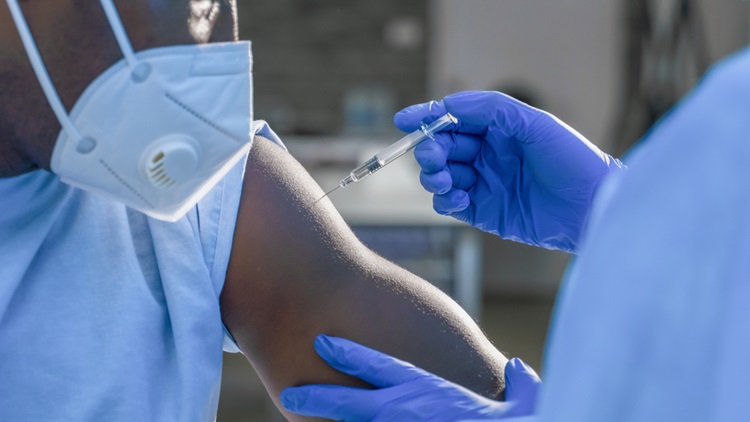Understanding the Importance of Vaccines in India
Understanding the Importance of Vaccines in India

National Vaccination Day is observed on the 16th of March every year and is considered a symbolic day when India started its first successful vaccination campaign against polio in 1995. Since then, this day has been an annual occurrence, which reminds us of vaccine significance in protecting our population. Vaccination is a strong ally we can rely on when it comes to combating diseases that threaten our very survival and may be potentially fatal. In the present time, India, in particular, after the latest pandemic, the role of vaccines has become more important than ever.
History of National Vaccination Day
National Vaccination Day was established to commemorate the success of India's first-ever successful vaccination campaign against polio on March 16th, 1995.
Illnesses Tackled with Vaccination:
Vaccinations are instrumental in combating a wide range of illnesses, including:
• Polio: Vaccines are the most powerful helpers in polio removal in India; in fact, 2014 is the year when a polio-free India was announced.
• Measles: With the help of vaccines, several Measles outbreaks could be prevented by vaccination programs that have made the spread of this highly contagious viral disease less frequent.
• Tuberculosis: The single-dose vaccine BCG (Bacillus Calmette-Guérin) is one such vaccines that provides shielding from the monopoly of an infection, tuberculosis, caused by bacteria and affecting primarily affects the lungs.
• Hepatitis: Inoculation against hepatitis A and hepatitis B ear infections and their aftermaths is another benefit of vaccination.
• Influenza: Existing annual flu shots help curb the symptoms and air of the flu and keep individuals away from the complications that seasonal flu outbreaks cause.
Importance of Vaccination:
The pandemic of COVID-19 justifies vaccinations as the main methods that can be relied on to protect public health. Key points to consider include:
• Disease Prevention: COVID-19 vaccines have stood the test of their worth in the form of preventing severe infections, hospitalisations, and deaths that could lead to the loss of life.
• Herd Immunity: Vaccination campaigns aim to reach herd immunity in which up to 70% of the population is safe and can thereby no longer transmit the virus among the population.
• Economic Recovery: Vaccinations are a crucial component in the resumption of activities and return to normalness of our life by cutting on the spread of the virus and ensuring no disruption embedded in lockdowns and restrictions.
• Health System Resilience: Vaccination of the population greatly reduces the strain on healthcare systems caused by a high number of COVID-19 cases who seek critical care and hospitalisation.
Why Vaccinations are Important for Indians Toda:
• Protection Against Infectious Diseases: Vaccination is one of the most important means of protection against a wide range of contagious diseases, including measles, tuberculosis, hepatitis, etc., that are still relevant to the Indian public today.
• Public Health Preparedness: The immunisation campaigns support the public health delivery system and make it more effective to forestall the proliferation of communicable diseases and smooth handling of an outbreak and a pandemic locally.
• Prevention of Outbreaks: Vaccination serves as an effective upshot as it helps fewer outbreaks of vaccine-preventable diseases, whereas it lightens the burden of healthcare resources and prevents unnecessary suffering.
• Health Insurance Coverage: Many health insurance plans provide vaccination coverage; so, more segments that would not have been able to get the vaccines, for example, the poor, get the chance to have them. Moreover, comprehensive vaccination schemes offer indispensable financial protection of the bills for the treatment of vaccine-ward diseases.
• Personal and Community Well-being: Vaccination not only hinders individual diseases from being spread out but also improves communal health by deterring the spreading of pathogenic bugs and maintaining the public health framework.
Conclusion
In conclusion, National Vaccination Day can highlight the irreplaceable importance of vaccinations in sustaining people’s health and better lives. India will become an indomitable part of the battle against infectious diseases by giving top priority to vaccines, ensuring vaccine acceptance, and levelling out access to vaccines. By incorporating vaccination and completing it with well-structured health insurance, India can be even healthier and more robust in succeeding generations.
Disclaimer The above information is for illustrative purposes only. For more details, please refer to policy wordings and prospectus before concluding the sales.
RELATED ARTICLES
How are vaccines developed? What are the stages? - A guide to the stages of vaccine development
Vaccination Chart for Babies in India
National Vaccination Day: Attack Common Illnesses with Vaccination
Top Myths about COVID-19 Vaccine for Kids Debunked
Ready to take the Covid vaccine? A guide to the CoWin Portal










 Health Insurance
Health Insurance  Travel Insurance
Travel Insurance  Car Insurance
Car Insurance  Cyber Insurance
Cyber Insurance  Critical Illness Insurance
Critical Illness Insurance
 Pet Insurance
Pet Insurance
 Bike/Two Wheeler Insurance
Bike/Two Wheeler Insurance  Home Insurance
Home Insurance  Third Party Vehicle Ins.
Third Party Vehicle Ins.  Tractor Insurance
Tractor Insurance  Goods Carrying Vehicle Ins.
Goods Carrying Vehicle Ins.  Passenger Carrying Vehicle Ins.
Passenger Carrying Vehicle Ins.  Compulsory Personal Accident Insurance
Compulsory Personal Accident Insurance  Travel Insurance
Travel Insurance  Rural
Rural 











